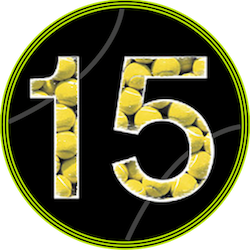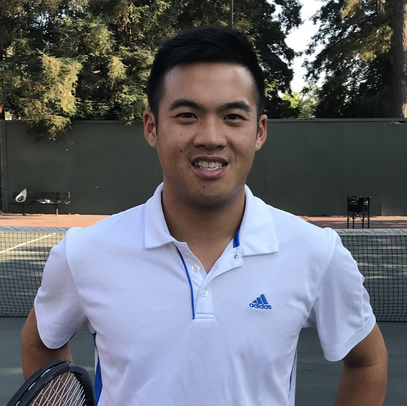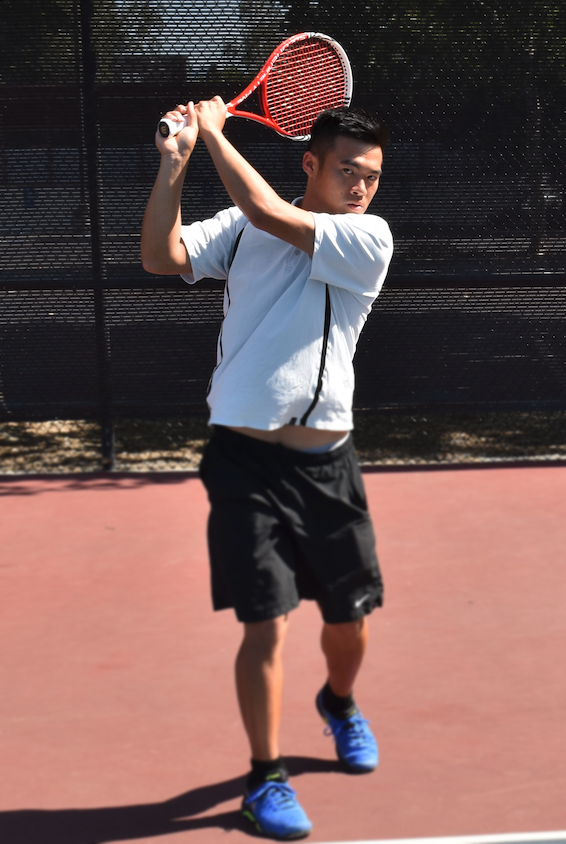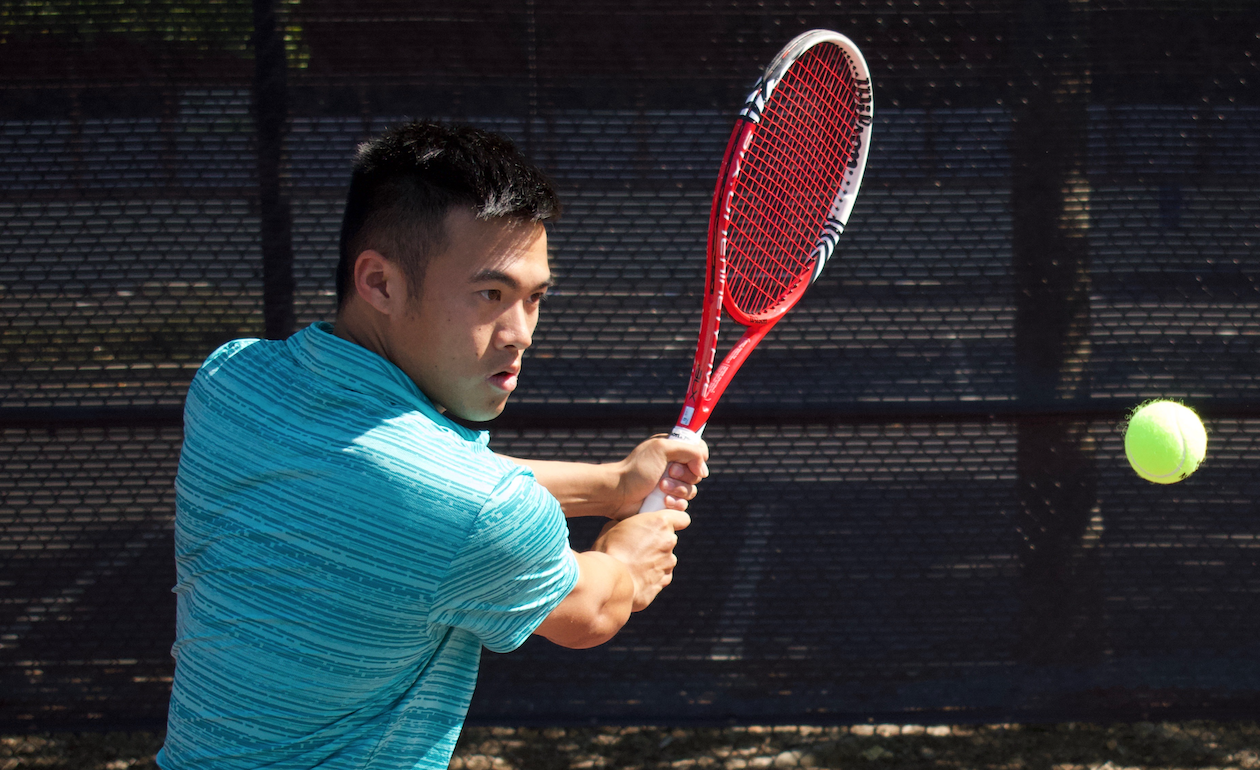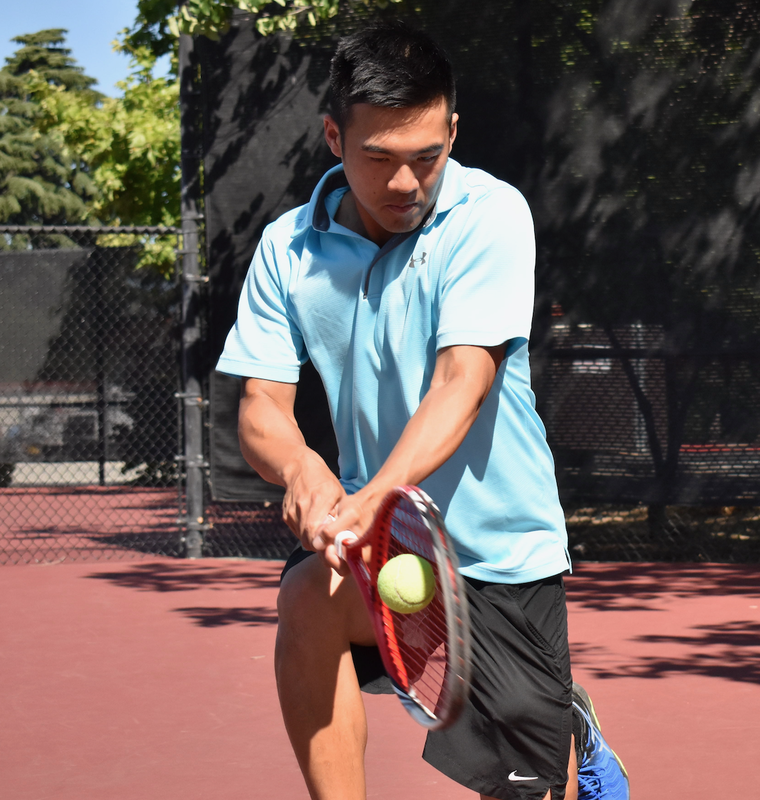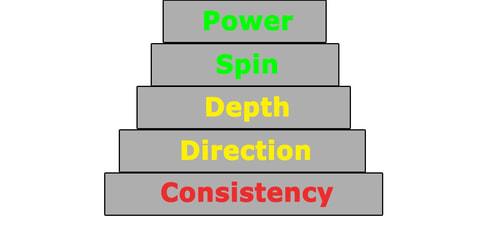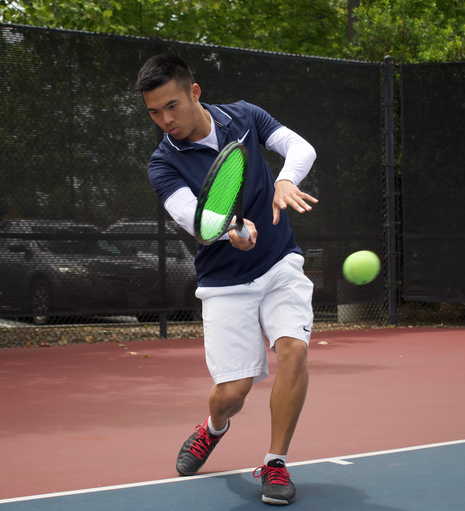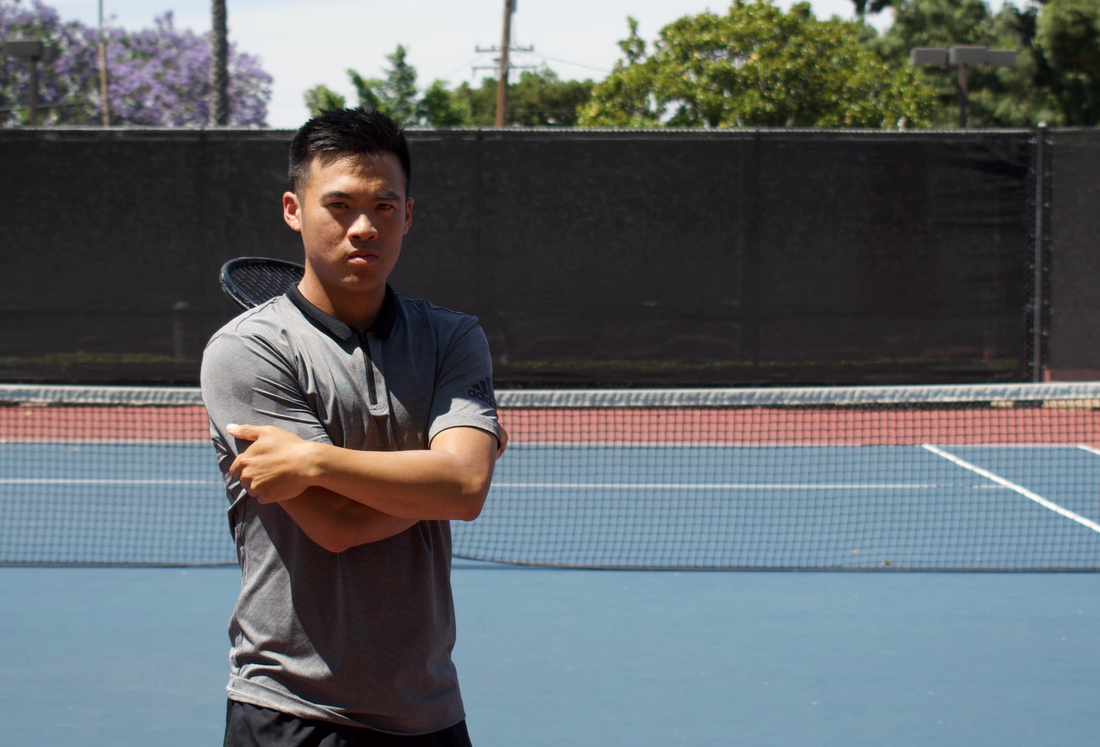Do You Have A Turn Key System
To See Measurable Improvement Everyday...?
|
...It began over 14 years ago when I first picked up a racquet. I felt disadvantaged because I didn't start tennis at age 6 like everybody else and playing catch up wasn't easy.
...I was naturally quick, but I lacked coordination and not being able to hit well - needless to say - I found myself chasing down balls, gasping for air and exhausted while the more skilled players had me on defense all match long. ...NODODY can truly enjoy tennis with a subpar skillset, but my parents didn’t know anything to give me guidance. The answer I got was "just keep working" which meant hitting another basket of serves and another thousand forehands. ...And it worked! Sorta... |
|
...Some days everything felt magical... surreal. But the next day I'd "lose my stroke" as if the hours of practice evaporated into THIN AIR. I'm not unique by any stretch, but I'd go MONTHS playing awful and hitting more balls didn't make it better.
...I got the same answer "just keep working." The only problem... I was doing it on my own. I was building the bad kind of "muscle memory" and became more anxious because my shaky foundation would crumble every single time under pressure. ...Finally through painful losses and struggles to nowhere, I made a decision to find answers. Thus, I began my rigorous and resource intensive journey to acquire a FIRST CLASS tennis education from ATP level players who rewrote everything I knew about the game of tennis. ...Today, this body of work has evolved into The 15 Points of Tennis where I've coached students from beginners, top juniors, and current college players using a system to improve at a rate FASTER than I couldn't even have dreamed of 14 years ago. |
What Is The 15 Points Of Tennis...?
...Simply put, The 15 Points Of Tennis teaches a systematic way to develop your skillset and make tennis more fun. It all centers around the Kinetics - the most effective way to build technique that makes your movements more energy efficient without needing huge amounts of strength or athletic ability.
...There are 3 important to phases to implement The 15 Points Of Tennis: Using Correct Body Mechanics, Knowing the Adjustment for Every Scenario, and Making It Automatic in Matches.
...There are 3 important to phases to implement The 15 Points Of Tennis: Using Correct Body Mechanics, Knowing the Adjustment for Every Scenario, and Making It Automatic in Matches.
Body Mechanics Proficiency: Unlock the underlying physics of your body's anatomy to get the most out of your strokes, especially if you don't have natural strength or athleticism.
Adjusting to Every Scenario: Learn to position yourself correctly and develop a framework of shots to handle every possible scenario and strategy to never be fooled.
Making It Automatic in Matchplay: Now comes the fun part - Making steps 1 & 2 instinctive and understanding the mindset to perform consistently and reliably under pressure.
Adjusting to Every Scenario: Learn to position yourself correctly and develop a framework of shots to handle every possible scenario and strategy to never be fooled.
Making It Automatic in Matchplay: Now comes the fun part - Making steps 1 & 2 instinctive and understanding the mindset to perform consistently and reliably under pressure.
|
...Every day, thousands of players are looking for ways to improve and because tennis is so technical, it requires closing an enormous knowledge gap.
...Where does your game break down or have big peaks and valleys? That’s where having a comprehensive system can allow you to self-correct on the fly. |
The 15 Points Equation
|
...The most important part of tennis is increasing your Base Skill Level! The 15 Points of Tennis is laser focused on helping you self-develop the permanent change fundamentals that you can control instead of being so distracted on the result that you completely miss what is takes to achieve that result!
...The lessons are broken down in 2 phases. PHASE #1 teaches about how to build a rock solid foundation so your game doesn't break down under stress and pressure, along with you mastering the process to self-correct and patch. Tennis is the only sport where you have to coach yourself and there's nobody there to catch you. ...At the recreationally competitive level, this important phase is one of the fastest, simplest, and proven ways to separate yourself from the competition. ...PHASE #2 is all about learning how to correctly build reliably offensive weapons that put the game on your racquet and give you a legitimate opportunity to win against any opponent at the highly competitive level. |
The 5 Ways to Apply Pressure Pyramid
...Any structure will crumble under a weak foundation. Thus, we need to systematically engineer your tennis game with the same approach by building with a plan in mind. It will take some time, but laying one brick upon the other in the correct order is still the fastest and most efficient way to build your tennis game without it falling apart.
...The end result is you being able to rely on consistency, create dynamic play with direction and depth, and add spin and power as the bells and whistles to electrify your game.
...The end result is you being able to rely on consistency, create dynamic play with direction and depth, and add spin and power as the bells and whistles to electrify your game.
Start My FREE 3 Part Video Series!
Why I Give Lessons Away FREE
|
...Truth be told, I've worked hard to put lessons out for FREE and forego selling everything. So WHY am I doing it?
...If you've read my story, teaching and training tennis players is more than a profession, it's my passion. My goal is to be among the top development coaches and I want my knowledge and tools to be in the hands of everyone. Not just privileged students who are able to afford the best coaching and come to me for lessons, but those (much me like me growing up) who didn't have the opportunity to be exposed or the resources to match. ...I want others to experience the incredible transformative power of The 15 Points, go on to achieve their dreams, and look back at these teaching as a catalyst for that success. ...The other reason I'm continually give away lessons on the 15 Points of Tennis for free... because this system has already changed countless lives, including my own. Be the next person who's life and tennis game is completely changed! |
No Catch, No Tricks, No Continuity Program
|
...There is absolutely no catch here. There is no hidden continuity program. There is no trick or marketing gimmick.
... I simply want to open up a relationship. Consider this Free Video Series like our first handshake. Of course, if more help & tools are needed in the future... I would appreciate if people came back to me to continue & further that relationship! ...Believe me, there's no hidden agenda here. I simply want to start a relationship by offering the lessons and teachings that helped me and my students be successful. Nothing more. |
